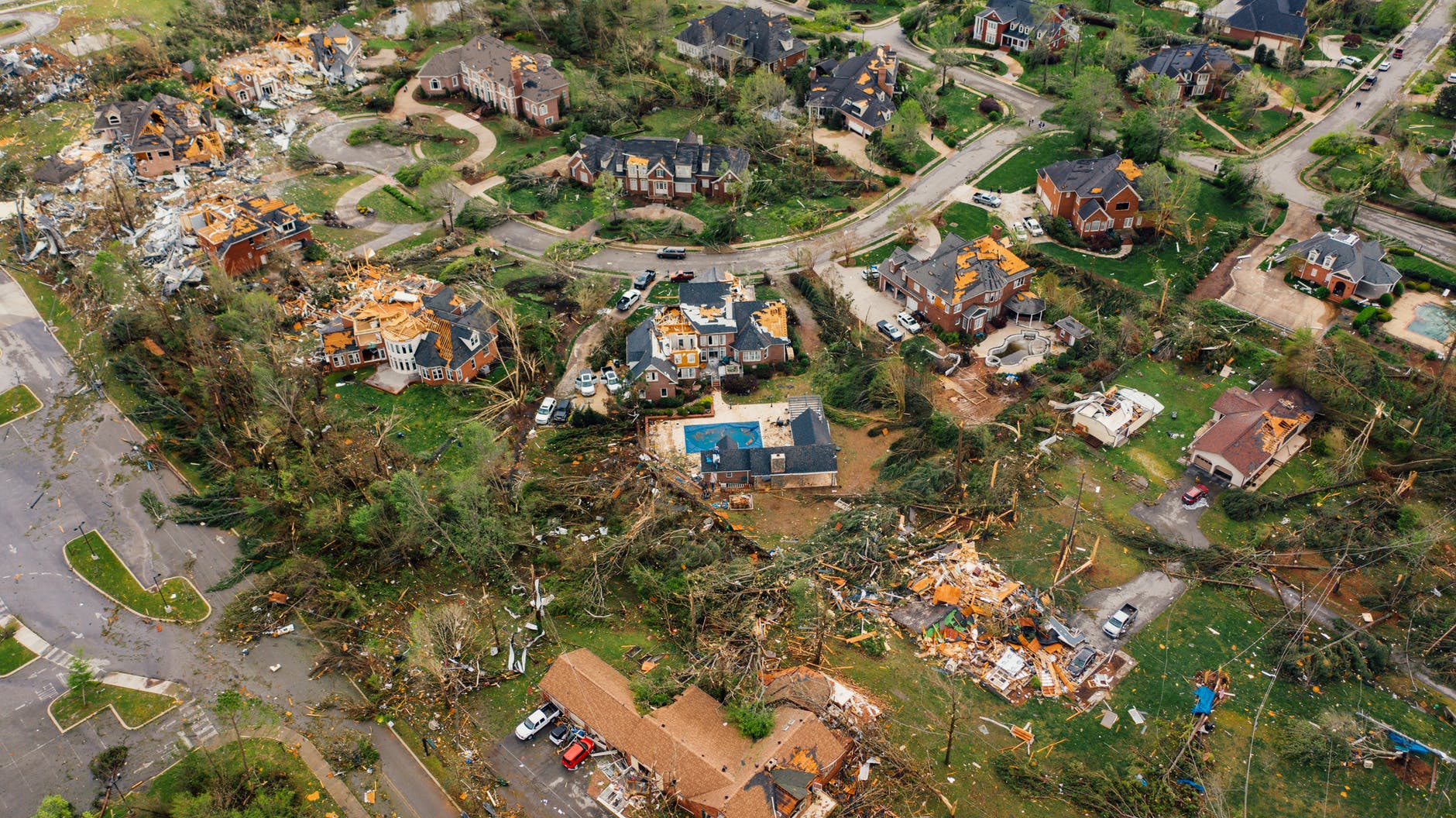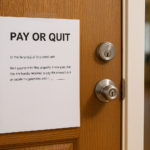I clearly remember my excitement 3 years ago at finding a rental house that was close to my son’s school. The daily commute would be a breeze and he could even walk to school if he wanted. We had finished unpacking about five weeks after the move when the Santa Ana winds started to kick up. Two days later a wildfire erupted dangerously close to our neighborhood, and later that night we had to evacuate.
Many thoughts raced through my mind as I quickly packed up the bare necessities to head to a friend’s house. Did I have enough renters’ insurance? Did I remember to take my lease with me? How much of the lease would I be financially responsible for if the house was damaged, and what about the security deposit?
Rarely are we fully prepared when a natural disaster strikes. Both tenants and landlords should take steps before a wildfire or hurricane to reduce the potential for property damage and keep people safe. The most common weather-related disasters that affect the U.S. are wildfires, hurricanes, and tornados. Let’s take a look at how to prepare for each of these situations if you own rental property.
Wildfires
Wildfires in the western U.S. have grown more prevalent in the last decade, fueled by long periods of drought. If you own rental property in a state with wildfire risk, take precautions to protect your rental property.
Start by having a conversation with each new tenant to notify them of procedures they should follow in case of wildfire. They should know how to turn off the gas main inside the house and where any fire extinguishers are stored. Review any terms in the lease agreement regarding keeping decks cleared and minimizing the accumulation of clutter close to the rental structure. The lease agreement should also include a minimum value for renters’ insurance.
Additional responsibilities for the landlord or property owner include:
- Weed Abatement: Many counties in wildfire-prone areas have minimum fire standards for weed and vegetation abatement. Most require keeping a “fire-resistant zone” of up to 30 feet around structures. Check the county rules where your rental property is located to make sure vegetation is at the recommended height and distance.
- Choose Fire-Resistant Shrubs and Trees: You can research foliage and trees that are less likely to catch fire. Your local landscaping store or nursery should be able to help with appropriate choices.
- Keep Rain Gutters Clean: Once a year you should hire someone to clear leaves and pine needles from the rain gutters on your rental property.
- Use Fire-Resistant Building Materials or Coatings: When making any modifications to the property, be sure to use recommended fire-resistant materials and coatings.
- Install and Maintain Smoke Detectors: Many states have building codes requiring smoke detector installation. Make sure your rental has smoke detectors in each room. Be sure to test and replace batteries with each new tenant.
Hurricanes
Some states in the U.S. see hurricane activity every year. If you live in Florida or Texas, you are probably familiar with how destructive they can be. The strong winds and excessive flooding created by a hurricane can leave behind extensive areas of devastation. Hurricane season typically runs from mid-May through the end of November. Unlike with wildfires, most residents in a hurricane’s path have some warning via The National Hurricane Center.
If you have rental property in a state where hurricanes are a common occurrence, there are things you can do to minimize potential structural damage.
- Clear Dead or Dying Trees and Trim Branches: The goal is to keep branches or trees from falling on any structures during high winds or pounding rain.
- Secure Siding and Exterior Shutters: Reduce the risk of flying debris that could destroy property or cause personal injury.
- Remove or Anchor Lightweight or Freestanding Yard Items: If your rental includes a picnic table, yard furniture, or a lightweight shed, it’s important to secure these items to the ground. Alternatively, you can notify the tenant where to store these items during the lease signing, and prior to a weather-related emergency.
- Share Information Regarding Local Emergency Shelters and Evacuation Routes: This is especially important if the tenant is new to the area and is unfamiliar with local hurricane protocols.
It’s always important to require renters’ insurance for all your rental properties, especially if they are in an area that has hurricanes or other natural disasters. Remind tenants to take photos of personal belongings prior to evacuating. Ideally, it would be better for the tenant to take photos of everything right after they’ve moved to avoid the added stress during an emergency.
While renters’ insurance doesn’t specifically cover hurricane damage, flooding or hail damage may be covered. Per FEMA, tenants in certain areas are eligible for a flood insurance policy up to $100,000 to cover belongings like furniture, electronics, and clothing damaged or destroyed by flooding. As a landlord, you can check with FEMA to see if your rental is in a community that participates in the National Flood Insurance Program (NFIP).
Tornadoes
There were 1,053 preliminary tornado reports in 2020, based on data from NOAA’s Storm Prediction Center. In fact, tornados are so common in the great plains area of the central United States that the region has been nick-named Tornado Alley. Tornadoes can actually occur almost anywhere, and while some cause tremendous damage, others are completely harmless. As a landlord, make sure that you and your rental property are prepared. So, what’s the best strategy?
It may seem difficult to safeguard your property from a tornado should one appear in your rental neighborhood. However, there are some preliminary measures you can take to secure the property. Similar to hurricane preparedness, it’s important to clear and trim trees and secure freestanding buildings, siding, and shutters.
As a landlord, the most important measure would be to make sure that the property has a safe room. Ideally, this would be an underground space like a basement or a separate storm cellar. If you have an apartment building with no basement, there should be a room on the ground floor that is “land-locked”. This refers to a room in the very center of the building with no outside windows, as high winds easily shatter windows.
For tenant preparedness, they should secure or store any items around the perimeter of the rental. Renters’ insurance policies are available that cover damage sustained in high winds. It’s also possible to find tornado-specific policies. The premiums will be based on the condition and location of the residence being insured.
Landlord Responsibilities After a Natural Disaster
Dealing with the aftermath and consequences of a disaster can be incredibly stressful. Immediately after a disaster, you should contact every tenant to make sure they are okay and to gather information about the condition of the property. Contact local officials to coordinate access to the property to determine the extent of any damages. Once you have an assessment regarding the condition of the property, review your insurance to make sure that your coverage is adequate for repairs or rebuilding. The inspection will also establish whether the structure is habitable for your tenant.
If the Property is Habitable
If the damage to the rental is minor and the structure is sound, the tenant should be able to stay (or move back in if evacuated). The property lease term continues, and the tenant should resume paying rent. Keep in mind that sometimes a disaster can affect a tenant’s ability to work which might impact rent payments. Especially if roads are closed, or local businesses have sustained substantial damage and have shut down. Keep the lines of communication open with your tenant. Be aware of any financial difficulties they are struggling with and remember to treat them fairly during this stressful period.
If the Property is Uninhabitable
If the property has been damaged to the extent that it’s unlivable, the tenant is not be obligated to continue paying rent. The tenant is also legally able to terminate the lease based on the Uniform Landlord Tenant Act, which states:
“The tenant may immediately vacate the premises and notify the landlord in writing within 14 days thereafter of his intention to terminate the rental agreement, in which case the rental agreement terminates as of the date of vacating.”
Many states have their own version of this language with different time frames, but the concept is the same. The specifics of early lease termination due to natural disasters can vary by state. As a property owner, it’s best to familiarize yourself with the requirements ahead of time.
Security Deposits
You may wonder what to do about the rental security deposit. The security deposit that the tenant paid to lease the property cannot be used for any damages that directly resulted from the natural disaster. If the lease is terminated because the property was severely damaged or destroyed, then the security deposit should be returned to the tenant. However, if the tenant continues to live on the premises, the deposit remains with the landlord. These funds can only be used at the end of the lease term for damages caused directly by the tenant.
File Insurance Claims
There may be many other issues to manage after your property has been through a natural disaster. However, it’s critical for both the property owner and the tenant to promptly file disaster-related insurance claims. The sooner the landlord can make repairs, the sooner the property becomes profitable again.










